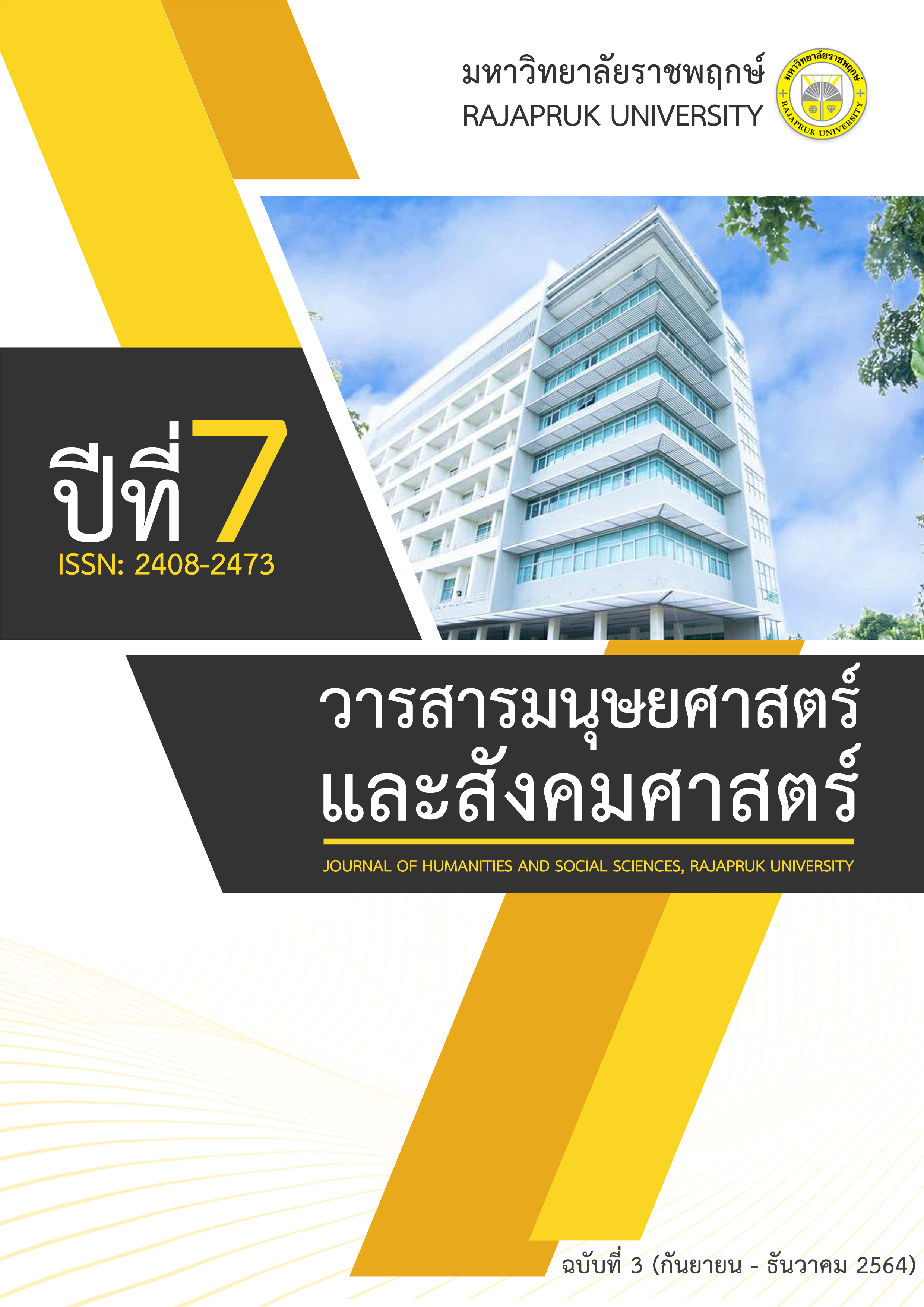The Relationship between Perception of Emotional Quotient of Administrators and Personnel Administration in Schools under Nonthaburi Primary Educational Service Area Office 2
Main Article Content
Abstract
The objectives of this research were to study 1) the perception level of the emotional quotient of administrators 2) the personnel administration level of the school, and 3) the relationship between the perception of the emotional quotient of administrators and personnel administration of the school under Nonthaburi Primary Educational Service Area Office 2. The sample consisted of 310 administrators and teachers in the schools under Nonthaburi Primary Educational Service Area Office 2, selected through stratified random sampling. The research instrument was a questionnaire with a set of five-leveled scales. The reliability at 0.88. The data-analyzing were percentage, mean, standard deviation, and Pearson’s Product moment correlation coefficient.
The results of the research were as follows 1) The perception level of the emotional quotient of administrators as an overall and all aspects was at the high level, the highest was self-awareness, followed by self-regulation, empathy motivation, and social skills, respectively. 2) The level of personnel administration in schools as an overall and all aspects was at the high level, the highest was manpower planning and positional planning, followed by discipline and being disciplined, and enhancing efficiency in government performance, respectively. 3) The relationship between the perception of the emotional quotient of administrators and personnel administration in schools under Nonthaburi Primary Educational Service Area Office 2 was at the moderate positive level with statistically significant at .01 level.
Article Details
References
กัลยาณี พรมทอง. (2556). ความสัมพันธ์ระหว่างความฉลาดทางอารมณ์กับผู้นำการเปลี่ยนแปลงของผู้บริหารในวิทยาลัยพลศึกษา. วิทยานิพนธ์ปริญญามหาบัณฑิต สาขาวิชาการบริหารการศึกษา คณะศึกษาศาสตร์ มหาวิทยาลัยศรีนครินทรวิโรฒ.
เกรียงศักดิ์ เจริญวงศ์ศักดิ์. (2554). การคิดเชิงประยุกต์. พิมพ์ครั้งที่ 5. กรุงเทพฯ: ซัคเซสมีเดีย.
มนัส บุญประกอบ. (2553). อีคิวกับภาวะผู้นำในบางประเด็น. กรุงเทพ: DESKTOP.
ลัดดาวัลย์ เพชรโรจน์ และคณะ. (2562). สถิติสำหรับการวิจัยและเทคนิคการใช้ SPSS. พิมพ์ครั้งที่ 3. กรุงเทพฯ: เจริญดีมั่นคงการพิมพ์.
สมาน รังสิโยกฤษฎ์. (2554). การบริหารงานบุคคล. พิมพ์ครั้งที่ 21. กรุงเทพฯ: สำนักงาน ก.พ.
สุริยา ไสยลาม. (2557). การศึกษาการบริหารงานบุคลากรในโรงเรียนประถมศึกษาของผู้บริหารสถานศึกษา สังกัดสำนักงานการประถมศึกษาจังหวัดหนองคาย. วิทยานิพนธ์ปริญญามหาบัณฑิต สาขาวิชาบริหารการศึกษา คณะศึกษาศาสตร์ มหาวิทยาลันราชภัฏมหาสารคาม.
สุรีย์พร รุ่งจำกัด. (2556). ความฉลาดทางอารมณ์ของผู้บริหารสถานศึกษากับการดำเนินงานด้านบุคคลของสถานศึกษาอำเภอ องครักษ์ สังกัดสำนักงานเขตพื้นที่การศึกษาประถมศึกษานครนายก. วิทยานิพนธ์หลักสูตรปริญญาศึกษาศาสตรมหาบัณฑิต สาขาวิชาเทคโนโลยีการบริหารการศึกษา คณะครุศาสตร์อุตสาหกรรม มหาวิทยาลัยเทคโนโลยีราชมงคลธัญบุรี.
อิสริยาภรณ์ ชัยกุหลาบ. (2553). ความฉลาดทางอารมณ์ของผู้บริหารสถานศึกษาสังกัดสำนักงานเขตพื้นที่การศึกษาเลย เขต 1 เขต 2 และเขต 3. วิทยานิพนธ์ปริญญามหาบัณฑิต สาขาวิชาการบริหารการศึกษา คณะศึกษาศาสตร์ มหาวิทยาลัยราชภัฏเลย.
Goleman, Daniel. (1998). What Makes a Leader?. Harvard Business Review, no. November/ December.
McClelland, D.C. (1973). Testing for Competence rather than for Intelligence. American Psychologist.
Salovey, P.& Mayer J.D. (1990). Emotional intelligence. Imagination. cognition and Personality.


